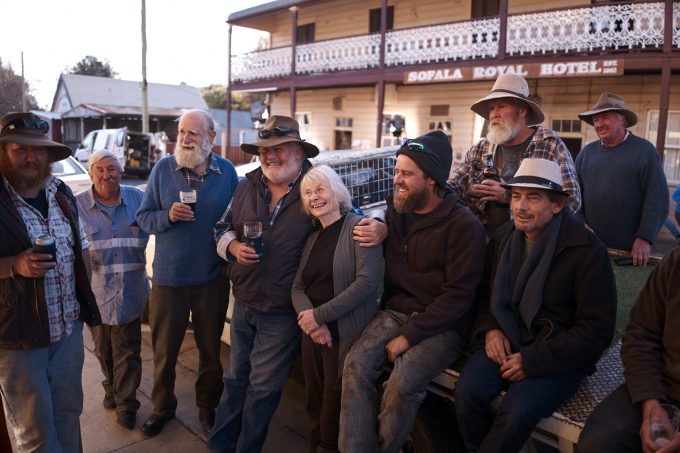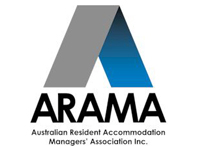Exclusive: Airbnb fights back on claims it’s hurting regional accom
Australia’s hotel industry may be thriving alongside Airbnb, but smaller regional operators say the picture is very different.
Accommodation providers from Launceston to Byron Bay are seeking state or council intervention to curb a short-let industry they say is negatively impacting business.
The Margaret River in Western Australia is a region where traditional operators are particularly feeling the pinch.
According to local press reports, many of Margaret River’s accommodation providers are struggling to pay their bills. With occupancy rates at record lows and trade down 30 percent on last year, several operators have already closed their doors.
A group called the Registered Accommodation Providers of the Margaret River Region has described Airbnb as a “corporate bully”.
“When the majority of your listings are unmanned holiday homes, you no longer have a home share economy, live like a local, shared economy, or whatever you want to call yourself this week,” said spokesperson Debbie Noonan.
“They have evolved into a bad corporate citizen that doesn’t employ Australians, doesn’t pay tax in Australia (they export all profits to Ireland, where the corporate tax rate is 12 percent), doesn’t collect GST and encourages tax avoidance from unregistered properties.”
Asked whether the struggling accommodation owners of Western Australia have a legitimate reason to be angry, Airbnb’s public affairs manager for Australasia, Julian Crowley, told Accomnews: “We would make four points:
- The big issue in WA at present is the overall struggles of the tourism industry as a whole – the industry is in the proverbial doldrums. The latest Tourism Research Australia results for domestic visitors showed a welcome jump in visitors to WA but another decline in expenditure. The Tourism Research Australia international results are similar with expenditure down by eight percent.
- Government subsidies to the big hotel lobby in Perth might be hurting smaller, regional hotels. The incentives provided to big hotels in Perth, including incentives to build new supply and in particular the new $2 million government-funded ‘Hotel Perth’ campaign, are not extended to smaller, local accommodation providers and might in fact negatively hurt them. Surely the question should be asked: ‘Why would the government promote big hotels in Perth over small, regional hotels in the Margaret River?’
- More and more traditional hospitality providers, including in the Margaret River, are joining Airbnb.
- Restricting home sharing would only make things worse for everyone – If you are in a hole, stop digging. Restricting home sharing would only make the situation worse in WA and would hurt the locals and small businesses – cafes, shops, pubs – that rely on Airbnb guests. We have called on the WA government to introduce fair and balanced state-wide rules for home sharing, just like there are in NSW, which would give everyone in the community clarity and certainty.”
Carol Giuseppi, CEO of Tourism Accommodation Australia, dismissed Crowley’s argument as “a lot of rhetoric”.
She said: “The reality is that regulated hotel investment supports industry growth by providing facilities, helps create destinations and contributes to destination campaigns and the economy.
“In areas where there is a high percentage of Airbnb accommodation, they are operating on an ‘unlevel playing field’ without the significant economic contributions of the regulated accommodation sector. The term ‘home sharing’ is very misleading.”
Ms Giuseppi acknowledged hotel building in cities such as Perth and Brisbane will create a significant over-supply of hotel rooms in the short term but said: “This is further impacted by the growth in unregulated accommodation, which does not contribute to the infrastructure and amenities nor provides the employment that the regulated accommodation sector does.”
While the TAA’s overarching parent organisation, the Australian Hotels Association, has been vocal in its criticism of the “proliferation of unregistered Airbnbs” in Margaret River, there are other reasons being touted for the region’s economic woes.
Two great white shark attacks in 24 hours in caused the abandonment of the Margaret River Pro surfing event back in April and saddled the region with an unwanted reputation.
And its 270km distance from Perth makes it a bridge too far for some potential visitors. Establishing nearby Busselton Airport as a short-hop flight destination to the renowned wine region has been suggested as a possible solution.
WA Tourism Minister Paul Papalia recently launched a $1 million campaign promoting Margaret River to the east coast of Australia.
“Research had shown that people were aware of Margaret River as a wine region but didn’t know about other activities and experiences on offer,” he said.
“The campaign showcases Margaret River as more than just a wine region. It also boasts perfect beaches, forest walks and luxury accommodation all in the one spot.”
The WA government, like jurisdictions all over Australia, is currently considering curbs on the state’s short-let industry, with Airbnb saying it welcomes fair industry-wide regulation.

AccomNews is not affiliated with any government agency, body or political party. We are an independently owned, family-operated magazine.






Since when has Airbnb become a spokesperson for the accommodation industry?
They dont own or run any legitimate accommodation businesses anywhere.
Julian Crowleys comments are unfounded.
“The big issue in WA at present is the overall struggles of the tourism industry as a whole – the industry is in the proverbial doldrums. The latest Tourism Research Australia results for domestic visitors showed a welcome jump in visitors to WA but another decline in expenditure. The Tourism Research Australia international results are similar with expenditure down by eight percent.”
These stats are similar for other regional areas including Mackay in Queensland. Maybe the expenditure decline by visitors has something to do with the cheaper accommodation offered through unregulated Airbnb operators. Visitors aren’t spending as much because they dont have too. It may also be because the traditional regulated motels, apartments, B & B’s have had to reduce their prices trying to compete for business in an unlevel playing field.
“More and more traditional hospitality providers, including in the Margaret River, are joining Airbnb.”
Thats confirmation Airbnb is not a Home sharing site. Maybe traditional hospitality providers are simply trying to keep their businesses afloat and have decided to list their legally run businesses in an effort to get more exposure and bookings.
“Restricting home sharing would only make the situation worse in WA and would hurt the locals and small businesses – cafes, shops, pubs – that rely on Airbnb guests.” My goodness, they used to rely on their customers from visitors who stayed in Motels and other regulated accommodation venues in the region, and the business owners themselves who live and breathe in the region. Not, as is often the case, an absentee home owner who doesn’t even live in the region.
Just more rhetoric from someone who has no idea about the real industry.
Absolutely agree 100%. Similar situation in the Barossa Valley.